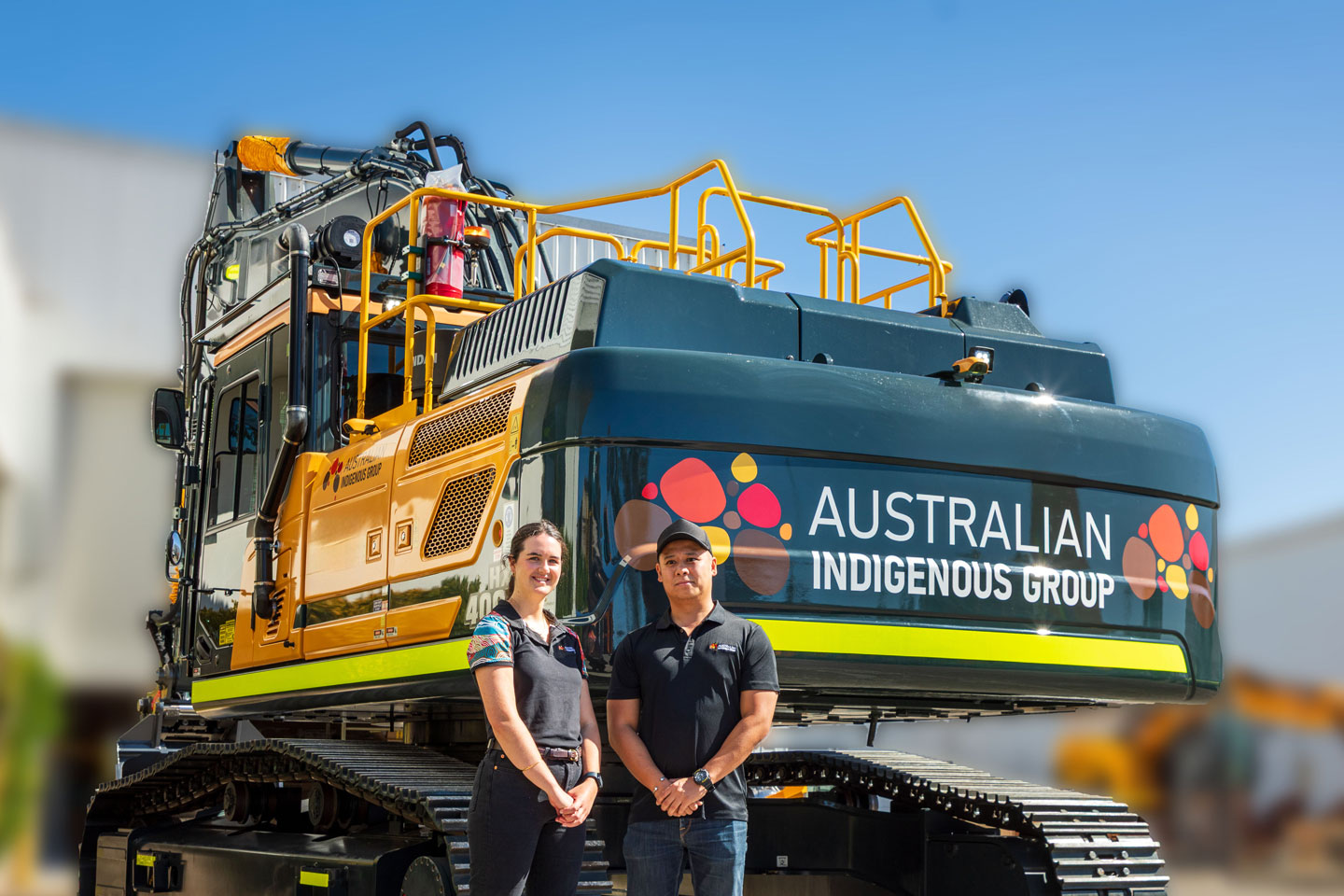How Eva Stewart Is Redefining Leadership in the Resources Sector


Eva Stewart didn’t plan on a career in mining. The daughter of a successful Aboriginal businessman, she grew up in the Pilbara surrounded by industry – and like many young people familiar with the challenges of mining life, she thought it wouldn’t be part of her future.
But now, at 29, Stewart, a proud Pinikura woman, leads two thriving Indigenous-owned companies, and is one of the most compelling young leaders in the Australian resources sector today.
“Once I stepped into mining, I saw the opportunity – not just for me but for others like me. It’s fast-paced, growing and offers a chance to make a real difference.”
As Managing Director of Australian Indigenous Enterprises and Australian Indigenous Group (AIG), Stewart’s strong values-driven approach has come to define her leadership. While both companies work with major Tier 1 clients like Rio Tinto and Fortescue, she says their measure of success is more than profit.
“We’re not just here to make money. We’re here to create something that lasts for our people, our communities and for Country.”
Under Stewart’s guidance, AIG and Australian Indigenous Enterprises have grown steadily, offering civil, mining and earthworks services in the Pilbara and beyond. Behind every contract won is a commitment to employment pathways, cultural inclusion and long-term community benefit.
That includes building a strong internal culture focused on wellbeing. Mental health is a key pillar of the workforce strategy, with regular training, the establishment of the Pilbara Dingoes Social Club, and a mentoring program that supports team members through personal and professional challenges.
“Being a good leader starts with being a good listener,” she says. “We want our people to feel seen and supported.”
Stewart encourages her team to take initiative, think critically and grow into leadership roles themselves. This mindset has helped shape a business culture that challenges the traditional top-down model and allows more diverse voices to influence decision-making.
As a young Indigenous woman, she occupies a space few have traditionally held in mining – and doesn’t take that position lightly.
“My grandparents were part of the Stolen Generations,” she shares. “So, for me to now be leading Indigenous-owned businesses on Country feels deeply significant – it’s a responsibility and it’s legacy.”
Stewart believes cultural leadership has a vital role to play in shaping the future of the resources sector.
“There’s strength in bringing different perspectives to the table,” she says. “When Indigenous knowledge and values are embedded in business strategy, you get stronger outcomes. For people, for the land and for the long-term sustainability of the sector.”
Over 40 percent of AIG’s workforce is Indigenous – and growing. But the focus isn’t only on hiring. It’s also on creating career pathways, mentoring opportunities and leadership development, particularly for women.
From site supervisors like Shardae Neale and Siobhan McKeon to the company’s financial and people managers, women now hold key roles across the business, shaping policy, guiding teams and leading project delivery.
“We hear a lot about mining being a boys’ club,” Stewart says. “But that’s changing. Women, especially Indigenous women, are breaking through. When we’re at the table, we’re making the industry safer, stronger and more inclusive.”
One of her proudest initiatives is AIG’s structured traineeship program, designed to support individuals who face social, economic or cultural barriers to employment.
“Talent is everywhere, but opportunity isn’t,” she says. “So we’ve built pathways that meet people where they are and walk with them.”
The program provides on-the-ground training, mentorship and support services to help participants build both technical skills and confidence. Several graduates have gone on to secure full-time positions within AIG, and some have since stepped into leadership.
Since becoming Managing Director eight years ago, Stewart has helped expand operations across regions and projects. While civil earthworks and contract mining remain core, she is currently evaluating diversification into other resources, including junior gold exploration. The team works more closely with clients on ESG initiatives, with a growing emphasis on environmental stewardship and cultural site preservation.
“Growth is important, but it must be purposeful. We want to grow in a way that strengthens our values and our impact, not compromises them.”
That includes due diligence around who the companies work with. Stewart is increasingly focused on the ESG credentials of suppliers and subcontractors and ensures that cultural safety is embedded across all project sites.
Looking ahead, she sees a strong future for Indigenous-led businesses in the resources sector. In her view, the industry is slowly becoming more open to alternative leadership models – especially those grounded in values of care, collaboration and legacy.
Where does she see the companies in five or ten years?
“Growing, evolving and still making a difference,” she says. “I want to see more Indigenous people in leadership. More women. More diverse voices at every level because the best ideas arrive when different perspectives come together.”
Eva Stewart doesn’t see her work as extraordinary, but in a sector once seen as impenetrable, her impact is undeniable in making way for new voices, stronger values and lasting change.








